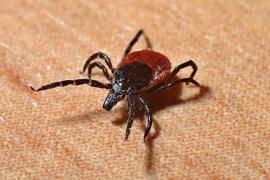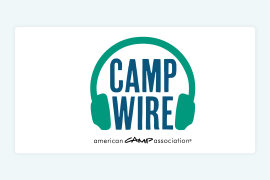Like many camps that are hiring college-aged staff to work during the summer, over the past few years I have noticed an increase in staff that are being treated for (or have recently been treated for) anxiety. According to the American College Health Association (ACHA) the 2015 National College Health Assessment survey reported that nearly one in six college students (15.8 percent) had been diagnosed with, or treated for, anxiety.
Last summer, we hired a very organized, on-the-ball and high achieving counselor named “Hailey.” Hailey was new to camp, referred to us by her friend, a longtime camper/staff (often our best source in finding new staff to join our team). We were all very impressed by Hailey — articulate, organized, and very excited to work with children in a camp setting. She was a perfect match, so we offered her a position.
Through the onboarding process, Hailey asked to meet with me to discuss some questions and concerns she had about camp and her duties. I assumed she was going to ask for a week off for a surprise vacation her parents had planned or tell me she has to leave camp early since she was just offered an R.A. position at school, an understandable financial deal she could not turn down. But instead, Hailey shared with me that she was nervous about the job — how she was going to handle the spontaneity and unpredictability of being a camp counselor because of her recent diagnosis of anxiety.
I put away my summer staff calendar (again, assuming she was going to tell me about her conflicts), and let her talk. I was impressed by her candidness and ability to share how she is affected by her anxiety (poor sleep, difficulty concentrating, and, sometimes, “mild” panic attacks). She made sure to tell me she is now on medication and her symptoms are managed, but still wanted to talk in more detail about the job and what triggers her anxiety … the unknown, the ambiguity, and the feeling of lack of control.
Hailey and I talked more in depth about the day-to-day responsibilities of her position, and focused on how we could support her and help her manage any anxiety that she experiences. We both knew we were not going to be able to “control” every situation that came up at camp, but we could support Hailey by helping her manage her emotions when she was feeling her stress levels go up.
I asked Hailey what I could do to support her, wanting her to feel empowered by coming up with her own ideas (instead of me doing it for her). I had to resist the urge of putting on my camp director hat to solve her problem for her. Hailey and I made a game plan; we assumed there would be times when she would experience stress (it’s camp!) and when she did, Hailey would seek out the extra support of her direct supervisor. Hailey was pretty sure she didn’t want to share her diagnosis with anyone else besides me (the shame and stigma the diagnosis “supposedly” comes with) so instead she decided she’d call any anxiety she was experiencing a “learning opportunity” when she needed help.
Fast forward to the end of the summer … Hailey was a really good first year counselor at camp. She had a few minor mishaps — forgot her campers’ sunscreen, misplaced her groups’ water bottles and was sometimes late to her scheduled activities. Hailey was quick to find a remedy for her minor mishaps, and very quick to do everything in her power to not make the mistakes again. I was very impressed with Hailey and after a few private check-ins as well as some after camp texts at the start of camp, I almost “forgot” she had this diagnosis. I credit this to Hailey’s ability to identify her stressors and finding strategies to handle them.
I reached out to Hailey after summer ended to check in and see how she thought summer had gone for her. She loved her campers and new staff friends she had made, and said she learned so many skills that she knows will help her with her education degree and goal to become an elementary teacher. Hailey shared with me how hard she thought she worked at her job and how much planning she did outside of the camp day hours to be prepared for the next day. She said planning in advance really helped her manage her anxiety and helped her to be mindful of her campers’ experience at camp (she said she was a little envious of the staff who could show up and improvise, but knew that style would never work for her).
I thanked Hailey for coming to me in the spring to talk about her concerns, and asked her if by talking about it and making a game plan helped her to be successful in a very demanding job. She definitely thinks sharing her diagnosis with me freed her a little bit of her concerns, but doing so much extra work was the real key to her success.
I too learned from this experience: not too shy away from hiring someone who has an anxiety diagnosis, as well as to talk about it and help that person make a game plan. It required little work on my part (an open door and a good ear — and a few extra check-ins with her), as well as a little reading about the diagnosis. We hope that Hailey will return this coming summer to camp … her campers also loved her (as did her co-workers).
Sarah Horner Fish is the executive director at Tom Sawyer Camps in Altadena, CA, and a member of the ACA Healthy Camps Committee.
The views and opinions expressed by contributors are their own and do not necessarily reflect the views of the American Camp Association or ACA employees.



